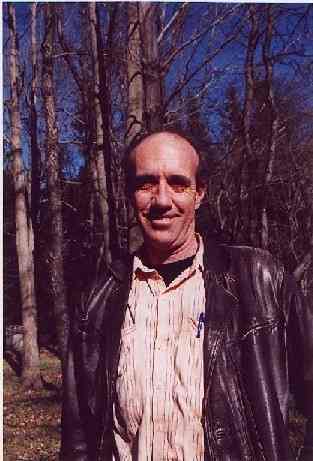Intent
”Is our coming on earth ruled by a law, or does it happen in a haphazard way?
This very subtle problem is very difficult to explain. We are helped by understanding the meaning of accident and intention. They are two distinct things. It helps us if we try to discover what is hidden behind accident. Then we come to the intention in the scheme of the working of the whole.
Everything has a purpose, nothing is an accident; but to our mind there is accident. So accident exists for us like a shadow. Neither has shadow a real existence, nor has accident. Nothing is really accidental, but as the idea of accident goes on, it attracts accidents more and more. For instance, a person may wander for six months in
Intention is behind every activity, and the intention which we do not know, we call accident." Hazrat Inayat Khan
Traditional Sufism has a basic practice or mantra that is common to all orders. In Arabic the words are La Ilaha Illah 'llah Hu. A literal translation into English is No Existence Except God – Hu is translated as Presence. The way it is normally expressed is Nothing Exists Except God and God's Presence. Every Sufi order, and there are many, use these words, though in many different ways. Often they sing or chant the words in a singsong fashion. Some orders repeat them slowly and rhythmically and all think about them. In addition to this practice, most orders have other spiritual practices that they do, some simple, others quite complex. All however have as their objective the unveiling of the personality and the transformation of the being into whom they are becoming.
In all the years that I have been a Sufi it was never really all that important to me where these words came from or why they seem so real to me. For a person raised as a Muslim they are the essence of their faith or they should be. For someone raised as a mid-western Lutheran, they are just strange syllables that have no meaning in and of themselves but seem to have some effect on my consciousness, or maybe I am imagining it. Never the less, when I first heard them and struggled to repeat them correctly, something magical seemed to take place within my being. What I came to understand was that this is intent.
As Hazrat Inayat Khan says above, things may seem like they are accidental but accidents are really the shadow of intent. Imagine for a moment that it is possible to know the mind of God. This is clearly not possible but let's just pretend that we have a limited access. Does God see accident? Does the Universe in its constancy see accident? Even if one subscribes to chaos theory, random acts still breed distinct results that have an effect on the whole body. It is as if the body needed a certain result and created it. Therefore, by definition, the distinct result demanded the random acts in order to manifest.
Pir Vilayat used to frequently quote some French philosopher, whose name escapes me, who said something that he very much approved of. The pull of the future is much stronger than the push of the past. Pir Vilayat was using this phrase to explain to people how their future being was asking them to perform certain acts and concentrations in order to enable the manifestation that was already in place in the future self. Tricky stuff to think about because what if you do not do what the future self is asking of you? Does the time line split? Does the future self then disappear or does one part of you that did what was asked continue to create the future self, while another part of you, which denied the pull creates a totally separate self in another Universe? Science Fiction authors have made a lot of hay out of this speculation and that is fine for them, for ordinary people it simply means do it or not. If you do it, the future self manifests, if you don't it doesn't. On a much larger scale it would appear to be much more purposeful. The larger the sample, the more likely it is that the future self will enlist the past in the futures manifestation. In other words, for an individual it is a matter of individual will, for the whole of humanity it just happens. The big question individually is whether or not you will participate or stand back and watch someone else understand Divine Intent.
Now, if La Ilaha Illah 'llah Hu actually has validity, then all that we are is an expression of Divine Intent. Ibn al Arabi, the great Sufi metaphysician, noted that in creating humans God had to allow for the possibility of being surprised by his creation. So free will is an important aspect. However, there does seem to be movement in a direction that feels like the pull of the future. Just the reality of world wide communications tells us something very important. Humanity has a deep desire to understand itself. So? Are you in or out?
Love & Blessings, Musawwir



